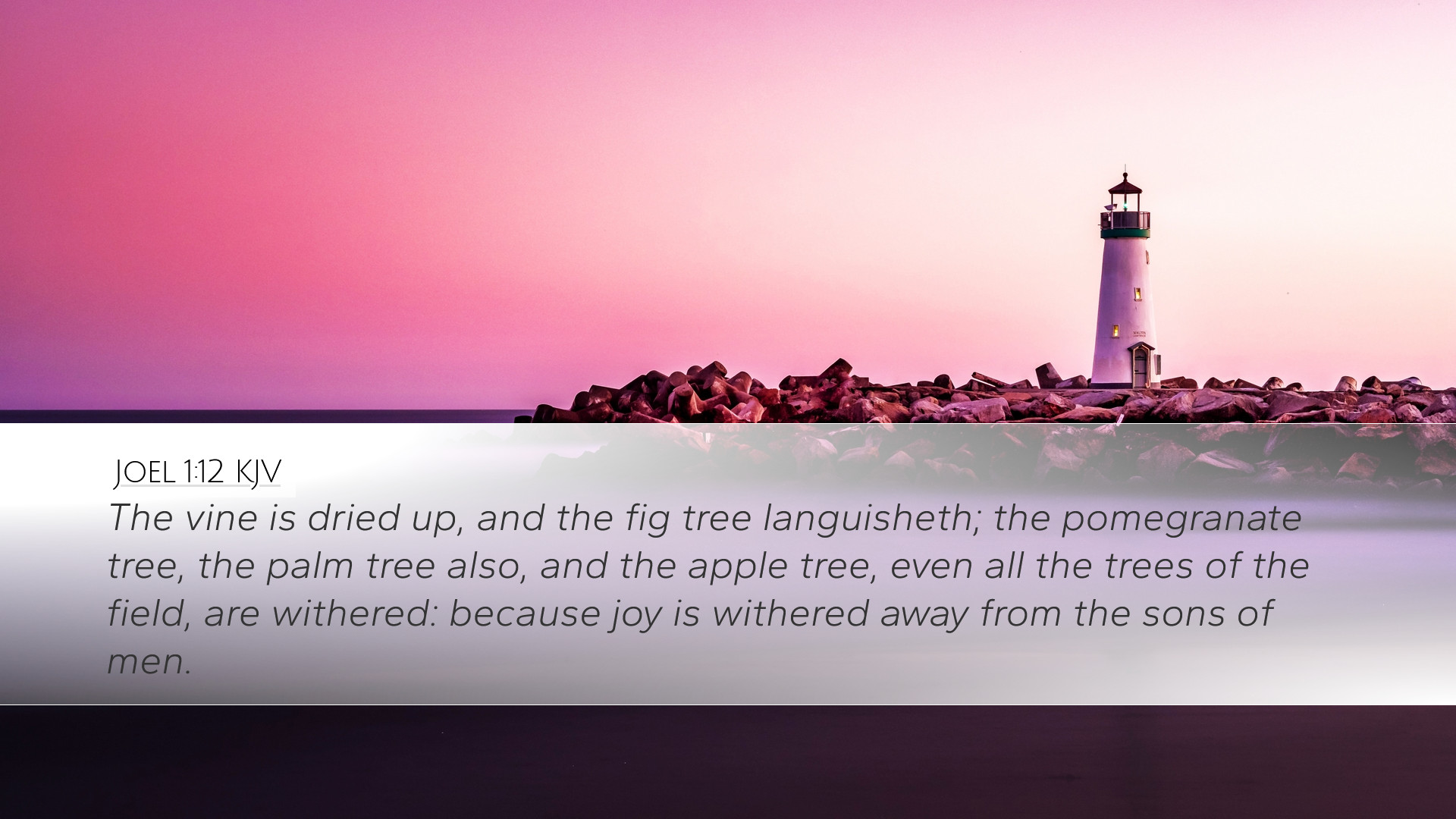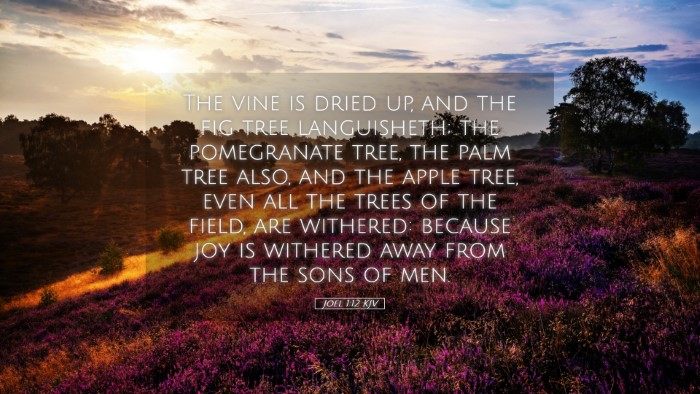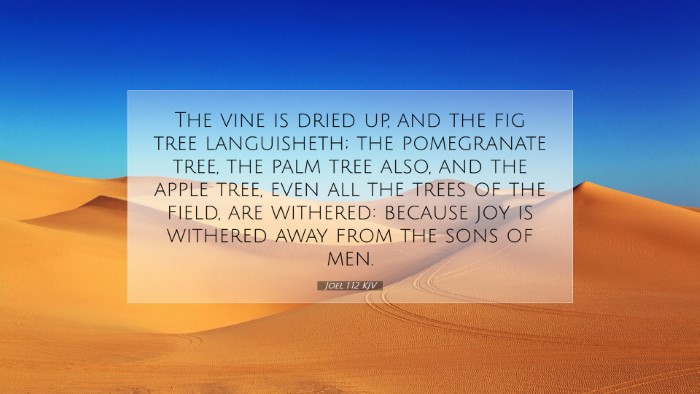Old Testament
Genesis Exodus Leviticus Numbers Deuteronomy Joshua Judges Ruth 1 Samuel 2 Samuel 1 Kings 2 Kings 1 Chronicles 2 Chronicles Ezra Nehemiah Esther Job Psalms Proverbs Ecclesiastes Song of Solomon Isaiah Jeremiah Lamentations Ezekiel Daniel Hosea Joel Amos Obadiah Jonah Micah Nahum Habakkuk Zephaniah Haggai Zechariah MalachiJoel 1:12
Joel 1:12 KJV
The vine is dried up, and the fig tree languisheth; the pomegranate tree, the palm tree also, and the apple tree, even all the trees of the field, are withered: because joy is withered away from the sons of men.
Joel 1:12 Bible Commentary
Commentary on Joel 1:12
"The vine is dried up, and the fig tree languisheth; the pomegranate tree, the palm tree also, and the apple tree, even all the trees of the field, are dried up: because joy is withered away from the sons of men."
Context and Overview
The book of Joel is a prophetic text that addresses the people of Judah in a time of calamity stemming from a severe locust plague, which serves as both a literal and metaphorical symbol of divine judgment. In this specific verse, the prophet Joel laments the desolation of nature, which mirrors the spiritual decline and emotional despair of the people.
The Vine, Fig Tree, and Other Trees
Joel explicitly mentions various trees: the vine, fig tree, pomegranate tree, palm tree, and apple tree. These trees symbolize not only sustenance but also the prosperity and joy of the community:
- Vine: Represents fertility and the joy of harvest, often associated with divine blessings.
- Fig Tree: Symbolizes peace and security; its fruit speaks to abundance.
- Pomegranate Tree: Known for its many seeds, represents prosperity and blessings.
- Palm Tree: Symbol of victory and eternal life; also a sign of festivity.
- Apple Tree: Indicates sweetness and desire; often associated with love and beauty.
Thus, the mention of these trees accentuates the depth of loss felt by the community.
Theological Implications
Matthew Henry emphasizes that the decay of these trees reflects a greater spiritual reality. The physical barrenness results from the withdrawal of God’s favor and joy from among the people. Joy, as a central theme, is inextricably linked to the faithfulness of the Lord. When community struggles, the absence of joy signifies a distance in relationship with God.
Connection to Spiritual Emptiness
Albert Barnes comments on the phrase "joy is withered away from the sons of men," indicating how material prosperity cannot satisfy the deeper yearnings of the human soul. The withering joy compels reflection on the state of one’s spiritual vitality and reminds God's people of their dependence upon Him for true joy and sustenance.
Call to Repentance
This verse serves as a poignant call to repentance. Adam Clarke interprets the natural devastation within Joel as a divine call to the people to return to the Lord. Recognizing the emptiness of their joy amidst their circumstances provides a necessary impetus for reflecting on their relationship with God. As the plants dry up, so too does the spirit of man in the absence of divine connection.
Implications for Contemporary Believers
The insights from Joel 1:12 are profoundly relevant for today’s believers. The spiritual state of joylessness among God’s people often manifests in a lack of vitality in worship, service, and community life:
- Self-Reflection: This verse encourages believers to assess their lives and identify areas of spiritual drought.
- Community Awareness: The collective joy or sorrow of a congregation reflects its spiritual health; a lack of joy indicates communal need for restoration.
- Restoration through Repentance: Like the people of Joel's time, contemporary believers are called to turn back to God to restore joy.
Conclusion
In conclusion, Joel 1:12 serves not only as a historical reflection on Judah's plight but also as an enduring lesson for all believers. Understanding the deep connections between the physical realm, spiritual joy, and community vitality challenges pastors, theologians, and scholars to explore the broader implications of their faith. Returning to God is the pathway to renewal and ensures that joy is restored both in individual lives and among God’s people as a whole.


